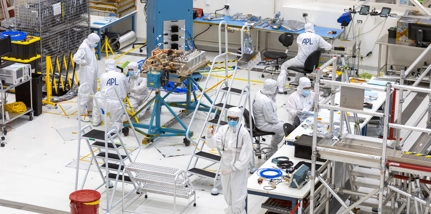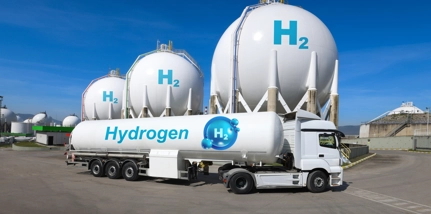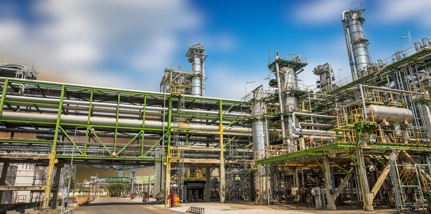
5 November 2024
One of the most impactful ways in which we’re reducing emissions and decreasing the demand for natural resources is by extending the working life of our equipment.
The process begins at the design stage, with longevity engineered into our new products through our choice – and development - of robust materials, streamlined architecture, extreme resistance testing and quality controls.
And it continues in the field, with both John Crane and Smiths Detection – our two businesses with a significant aftermarket presence – building revenues through our global programmes of lifelong support.
Sustainability is a key consideration for all our service decisions, from precision assembly to on-site technical support and skills transfer. For example, where feasible, our maintenance teams aim to recondition parts or ‘re-life’ systems rather than prematurely replace them.
Planned refurbishment
John Crane undertakes scheduled refurbishment of approximately 2,000 dry gas seals globally1 each year, restoring them to as-new condition with full warranty to meet ever-evolving leakage values. This gives customers peace of mind and renewed equipment performance, while controlling their greenhouse gas emissions, repair costs and downtime in a more sustainable way than simply replacing the product.
‘Re-lifing’
Similarly, Smiths Detection offers preventative maintenance upgrades that target particularly hard-working components before failure can occur. Replacing bearings, belts, fans or detectors in a timely manner, for example, can avoid a common age-related rise in energy consumption or premature replacement of a whole subsystem. This proactive approach eliminates the potential for minor problems to cascade as well as unnecessary waste.
Expert asset management
Increasingly, customers are seeking our expertise in long-term asset management to help them to not only reduce repair and running costs, but to reduce their environmental and health and safety impacts.
When a large oil refinery2 in the US was facing potential penalties as a result of new regulations for hydrofluoric acid (HF) alkylation units, it asked John Crane to audit its operations against the American Petroleum Institute’s ‘best practice’ guidance (API 751) for the safe management of such units. By following our resulting recommendations, the refinery has cost-efficiently eliminated the potential for non-compliance fines and reduced the chance for HF acid exposure to the atmosphere and personnel.
John Crane’s Mechanical Seals Reliability Programme is our comprehensive aftermarket support package helping customers in the oil and gas, petrochemical and process industries to maintain our products in the field, improving plant performance and reducing inventory and operating costs3. It incorporates a thorough equipment review and root cause analysis, which inform an individually tailored action plan with measurable performance targets benchmarked against a database of 75,000 recorded assets.
This allows customers to plan an informed and measured maintenance schedule that will optimise operational reliability and cost-efficiency while enabling them to improve – and prove - environmental performance and regulatory compliance.
Innovating for longevity
This collaborative approach to service provision also means we stay across the emerging challenges faced by customers, which informs our new product development programme. As well as our continuous new product innovation, this has driven an intensified focus on exploring how digital solutions might complement – and sustain the working life of – equipment already in the field.
Outcomes include Smiths Detection’s iCMORE object recognition software, which has capitalised on recent rapid advances in AI and detection algorithms to automate the detection of hazardous items such as flammable liquids, batteries and weapons. This can seamlessly integrate with existing screening workflows to provide new capabilities without significant capital expenditure and equipment turnover.
Likewise, John Crane Sense® diagnostic tool enables real-time, remote monitoring of mechanical seal performance and health. By providing actionable insights, it helps customers to proactively manage their maintenance schedules, which has proven to extend the mean time between repairs as well as seal longevity, while reducing the risk of emissions, unnecessary waste, downtime and costs.
This multi-dimensional approach to extending the life of products in our John Crane and Smiths Detection businesses, along with other circular economy efforts in Smiths Detection like reuse, resale and harvesting, is vital to a more sustainable approach to asset management, while having a positive environmental impact.
[1] Source: John Crane’s Dry Gas Seal Refurbishment Program: Service Excellence and Expertise for Reliable and Sustainable Operation
[2] Source: John Crane’s Audit Helps Refinery Meet Requirements and Avoid Fines with Mechanical Seal Pot Solution
[3] Source: Equipment Reliability Support and Improved Application Reliability | John Crane
Related insights

Searching for E.T.
Read our latest Engineering Explained insight on Smiths Interconnect's role in NASA’s Europa Clipper - to search for life on the fourth largest of Jupiter’s 95 moons.
Find out more

How our engineers are helping hydrogen to become a source of new energy
Read our latest Engineering Explained insight piece on how our engineers are helping hydrogen to become a safe, secure and profitable source of new energy
Find out more

CCUS: Why c.80% of the world's CO2 injected underground uses our technology*
Find out more





